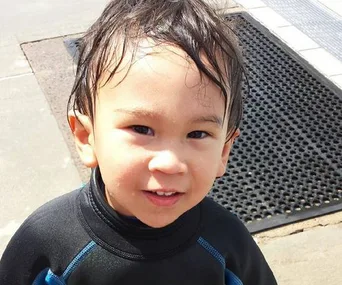Have you have ever found yourself rolling your eyes at your partner? It might not seem like a big deal, particularly in the heat of the moment. But experts are warning that contemptuous behaviour such as sarcasm, name calling and eye-rolling could be a sign that your relationship is in big trouble.
In fact, according to University of Washington psychology professor John Gottman, contempt is the number one predictor of divorce.
Following 40 years of research in which he studied couples interactions, Gottman has identified four key signs (which he names the four horsemen of the apocalypse) that divorce may be looming.
Contempt is top of the list, followed by criticism, defensiveness and stonewalling (emotionally withdrawing from your partner).
The Weekly Online spoke to Sydney based Imago Relationship Therapist Annie Gurton to find out more about the role contempt plays in relationships.
“John Gottman is spot on,” she says.
“If you find your partner being critical or contemptuous, the chances are that they have lost respect and love, and it is a long hard road back from that to a connected, strong relationship.
It’s not impossible, but it’s really hard.”
Annie says that there is no contempt in healthy relationships. “When we are in love we feel love and adoration, we want to care for them not denigrate them or pull them down,” she says.
If a relationship is in a good place then a couple will cherish and care for each other. “Anything less demonstrates that the feelings of love and respect have gone, maybe temporarily, perhaps permanently,” explains Annie.
Annie also notes that our romantic partners are the perfect people to help us heal and grow. “If you have any deep feelings of anxiety or fear, it is your romantic partner who can help you to recover,” she explains.
“You need to think of your partner as your therapist, and the better they know you the more help they can be to taking you into being the best you that’s possible.”
And while you might think that rolling your eyes or criticising your partner is just part of married life, it is actually a highly corrosive type of behaviour.
“Contempt is simply not conducive to a healing, nurturing relationship. In a good relationship we feel safe, and we can’t feel safe when we are with someone we feel is attacking us,” says Annie.
Contempt in a relationship also undermines effective communication. “We need to spend time looking into each other’s eyes, touching, connecting, and talking. If your partner is contemptuous or critical we cannot trust them with our deepest thoughts, and the relationship struggles to survive,” Annie explains.
So what can you do if contempt has started to creep into your relationship? Annie suggests that seeking some relationship counselling might be a good start.
“In a safe environment you can express your feelings that you are being criticised, and your partner can express their frustrations that underlie the contempt,” she says.
Annie’s advice is to act quickly:
“Contempt and criticism aren’t necessarily the end of the relationship,” she says.
“But the writing is definitely on the wall.”
You may also like: Seven Year Switch Jackie and Tim reveal baby news



